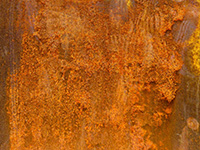When the salty sea air in Ocean County, New Jersey whispers through our homes, it brings with it a unique challenge for our HVAC systems. Living in this coastal region offers many joys, but it also exposes our heating, ventilation, and air conditioning units to the relentless force of salt air corrosion. This month, we’ll dive into this issue, revealing exactly how this salt air impacts HVAC maintenance in Ocean County, and more importantly, how you, as a homeowner, can effectively combat this persistent adversary. From understanding the science behind salt air corrosion to implementing practical strategies for maintenance and prevention, we’ve got everything you need to ensure that your HVAC system remains efficient, durable, and as fresh as the ocean breeze.
What is Corrosion and Why Does it Happen
Corrosion is a natural process that occurs when metals deteriorate due to chemical reactions with their environment. Metals like iron, when exposed to oxygen and moisture, undergo a reaction that forms iron oxide, commonly known as rust. This process is accelerated in environments with salt, like coastal areas, because salt water acts as an efficient electrolyte. This means it facilitates the flow of electrons and increases the rate of corrosion. Additionally, the presence of pollutants and other corrosive chemicals in the environment can further exacerbate this deterioration. Corrosion weakens the physical structure of the metal, leading to damage and potential failure of mechanical systems. This can be especially detrimental to systems like HVAC units. Understanding and mitigating corrosion is crucial, particularly in maintaining infrastructure and machinery, to ensure longevity, safety, and functionality.
How Corrosion Affects HVAC Systems

Corrosion has significant influence on HVAC systems. It can seriously impact the efficiency, longevity, and overall performance of both heating and air conditioning units. Metal components like heat exchanger coils experience increased deterioration due to corrosion. These coils are crucial for the transfer of heat in HVAC systems. As they corrode, their ability to effectively transfer heat diminishes, leading to reduced efficiency. Corrosion can cause critical components of HVAC systems, such as compressors, evaporators, and condensers, to fail prematurely. This is because the corrosion weakens the structural integrity of the components, leading to leaks, breaks, and ultimately, system failure. Overall, the lifespan of an HVAC system is significantly reduced due to corrosion. The continuous degradation of components means that the system as a whole is more likely to require complete replacement sooner than a well-maintained system in a less corrosive environment.
Routine HVAC Maintenance in Ocean County can Combat the Effects of Salt Air
HVAC systems affected by corrosion require more frequent repairs and maintenance. Corroded parts often need to be cleaned, repaired, or replaced more regularly, leading to increased maintenance costs. To safeguard your HVAC system against the corrosive effects of salt air, adopting a proactive maintenance routine is crucial. First and foremost, regular cleaning is essential. Moreover, using a protective coating on metal parts can provide a barrier against salt air. Investing in air filters designed to trap salt and particulates can significantly reduce the amount of salt entering the system. It’s advisable to schedule more frequent professional inspections and maintenance for coastal HVAC systems. In addition to identifying and addressing early signs of corrosion that a homeowner might overlook, professionals provide a thorough cleaning of units. These cleaning services go a long way in combating corrosion and wear and tear.
Salt Air Influences HVAC Maintenance in Ocean County
While the salt air of Ocean County adds to the charm of our coastal living, it undeniably demands a more vigilant approach to HVAC maintenance. By recognizing the signs of salt air corrosion and embracing preventive measures, you can significantly extend the life and enhance the performance of your HVAC system. Remember, regular cleaning, protective coatings, and choosing the right materials are key to winning the battle against the corrosive effects of our sea-kissed air. Don’t let the salt in the air take the comfort out of your home. With the right care and attention, you can enjoy the beauty of Ocean County without compromising on the efficiency and longevity of your HVAC system. Stay cool and corrosion-free, and let your HVAC system thrive in the salty air, just as you do.

